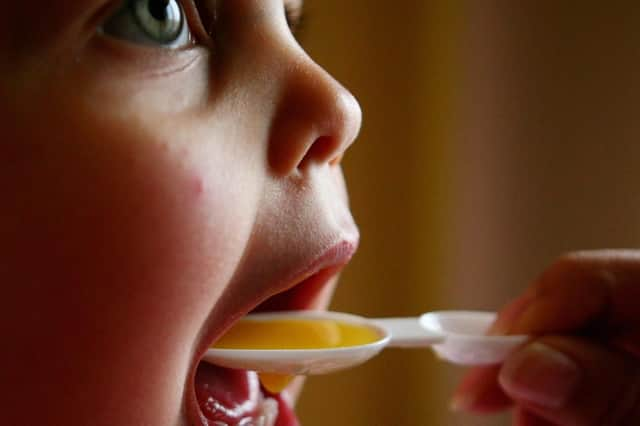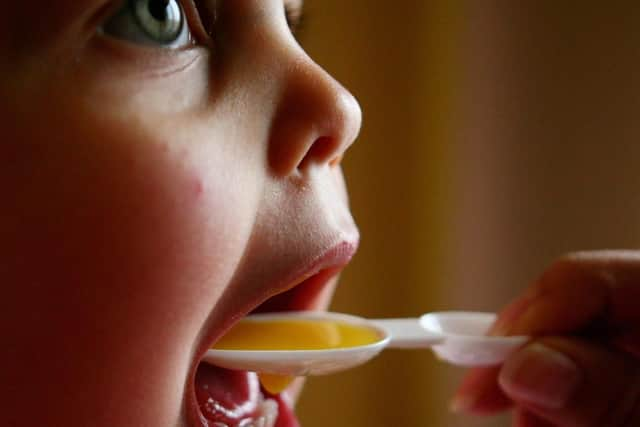Brexit ‘poses risk to children’s health’


The study, from the Royal College of Paediatrics and Child Health (RCPCH), welcomed a Government shift towards prioritising child health through initiatives such as tackling obesity and poor mental health, but warned of problems ahead.
The report also called for more to be done on child poverty, saying cuts to early-years services and public health funding were causing damage.
Advertisement
Hide AdAdvertisement
Hide AdIt also pointed to the UK's poor breastfeeding rates - some of the lowest in the world - which are no longer measured after the UK infant feeding survey was scrapped in 2015.


The study is made up of a scorecard on how much progress has been made towards recommendations contained in a 2017 RCPCH report.
It commended the Scottish Government for its plans to tackle child poverty, obesity and poor mental health, and said Wales had introduced measures to cut obesity and protect children from alcohol.
But it said progress on child health has been poor in Northern Ireland.
Advertisement
Hide AdAdvertisement
Hide AdIn England, there has been ‘substantial investment’ in community-based mental health services to ensure children can get specialist care.
On obesity, the report welcomed the sugar tax on soft drinks, restrictions on junk food marketing and more help for overweight children.
But it said no progress has been made on extending the smoking ban to schools, sports fields, playgrounds and NHS premises.
There has also been little progress in medicines for diseases that only affect children and there remains a real concern that Brexit will mean ‘the framework and standing in the UK in relation to children's medicines development will be lost’.
Advertisement
Hide AdAdvertisement
Hide AdThe study added: ‘We are entering a period of change and uncertainty.
‘The UK's exit from the EU raises concerns about ongoing access to important EU funding for child health and potential detrimental impact with respect to access to medicines and other forms of treatment.’
The report also said the College was ‘concerned that medical schools continue to dismantle Departments of Paediatrics around the country.’
On poverty, it said public health cuts were having an impact on children's services and called for the Government to prohibit further cuts to public health funding until this impact could be assessed.
Advertisement
Hide AdAdvertisement
Hide AdProfessor Russell Viner, president of the RCPCH, said: ‘We are witnessing a hugely welcome shift towards the prioritisation of child health, which is exciting not just for us as paediatricians, but for the health prospects of children today and generations to come.
‘But there are significant risks on the horizon. The political uncertainty caused by Brexit looms large, raising legitimate concerns about recruiting enough children's doctors and nurses and access to medicines and to EU funding for vital child health research.
‘Government must act now to ensure a focus on the children's workforce and investment in child health research are prioritised to mitigate the potentially damaging impact of Brexit.’
Prof Viner said child poverty and inequality in the UK ‘could undo much of the progress we are seeing’.
Advertisement
Hide AdAdvertisement
Hide AdHe added: ‘Deprivation is a major contributing factor to poor child health outcomes, and can lead to higher rates of poor mental health, increased alcohol or substance misuse, obesity, and death.’
A Department of Health and Social Care spokeswoman said: ‘As this report makes clear, the mental and physical health of our children and young people is a key priority for this Government.
‘The NHS Long Term Plan has committed to prioritising prevention so children can live well in their communities, increasing funding to give 345,000 more children and young people access to NHS-funded mental health services, as well as earlier detection and cutting edge treatments for major illnesses, including genomic tests for every child with cancer.
‘There are over 1,500 more paediatricians working in the NHS in England since 2010 and new NHS roles and careers are being shaped to reflect the priorities set out in the Long Term Plan for the NHS.’
